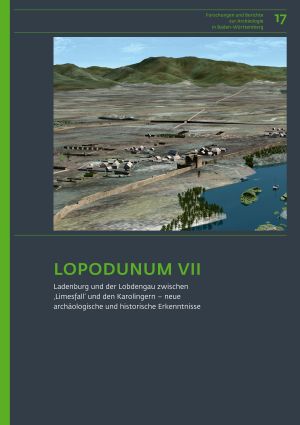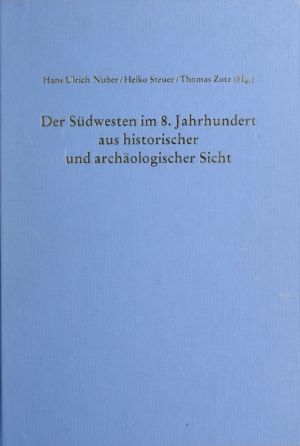Gross, Uwe
LOPODVNVM VII: Ladenburg und der Lobdengau zwischen ‚Limesfall‘ und den Karolingern
The town of Ladenburg looks back on a rich historical heritage: In the Roman era, Lopodunum was the capital of an extensive municipality, the civitas Ulpia Sueborum Nicrensium, and from the Carolingian period onward, Lobedtenburc is documented as the center of the Lobdengau. For the period in between, written sources are largely missing; all the more important are archaeological features and finds. The most important of these are presented in the volume at hand and embedded in the historical context. For instance, a group of Postumus coins from Ladenburg are presented, new interpretations of the late Roman burgus and the medieval ‘bishop's court’ are discussed, and recent findings on a Carolingian cemetery in the city area are presented. The surroundings of Ladenburg are represented by overviews on the richly equipped early medieval cemeteries of the region and on recent settlement excavations. Critical re-evaluations of written sources as well as historical-archaeological syntheses on the various possible scenarios of the 'Fall of the Limes' and on comparative regions such as the Palatinate in Late Antiquity complete the volume.
Der Südwesten im 8. Jahrhundert aus historischer und archäologischer Sicht
On October 28 and 29, 1994, the Freiburg Research Network "Archaeology and History of the First Millennium in Southwest Germany" organized a colloquium at the University of Freiburg with the topic "The Southwest in the 8th Century from a Historical and Archaeological Perspective".
During the colloquium in 1994 such a period of upheaval was to be looked at more closely with the 8th century. This period, which cannot be strictly defined as a century, shows its transitional character in various respects, e.g. in political history with the striking end of the Alemannic duchy in the middle of the century and the integration of Alemannia into the Frankish Empire, in settlement archaeology with the flowing end of the row grave custom, the typical burial custom in the Merovingian Empire, and thus of the so-called row grave civilization. It was the intention of the colloquium to work out selective and long-term changes of this kind in the concentration on a region characterized by manifold historical traditions (Celts, Romans, Alemanni) as well as in the specific comparison with other historical landscapes and to approach the topic both in a general overview and in individual case studies.








